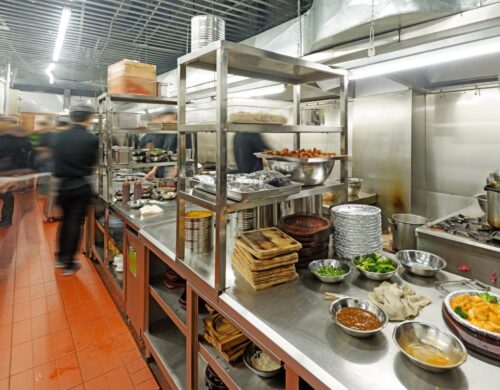Industrial Mixer Maintenance Tips
Best Practices For Maintaining and Cleaning Industrial Mixers
Industrial mixers are an integral part of manufacturing and processing Industries. These mixers ensure the homogeneity of different materials through thorough mixing. Industrial mixers require proper and regular maintenance and cleaning to enhance their longevity and optimal performance. Failure to do this can lead to equipment failure, decreased productivity, and safety. Below are seven best practices to maintain and clean industrial mixers for smooth running and efficiency. 1. Follow the Manufacturer’s Recommendations Read the manufacturer’s user manual for the specific mixer model. Note the particular maintenance schedules for the model. Regular maintenance typically involves the replacement of worn-out or damaged components and the lubrication of moving parts. Adhere to the manufacturer’s guidelines to ensure that the mixer functions appropriately and to foresee any potential issues before they become significant problems. 2. Keep It Clean Industrial mixers should be cleaned regularly as part of their maintenance. Residue and build-up from previously mixed batches can compromise the quality of future products and eventually damage the mixer over time. To avoid residue and build-up, clean the mixer after each use. If mixing happens concurrently, maintain a regular cleaning schedule. Remove individual components during cleaning, for example, blades and agitators. Thoroughly sanitize the interior of the mixer. Use appropriate cleaning agents and follow all safety procedures when you handle chemicals. Wear protective gear throughout the cleaning process to avoid harmful burns on the skin. 3. Check for Wear and Tear Components of your mixer may wear down or become damaged over time due to typical wear and tear. Wear and tear decreases performance and can cause equipment failure in some instances. Conduct regular inspections to identify worn-out or damaged parts that need replacing. Check bearings, belts, and seals, as they are susceptible to wear and tear. Inspect the mixer for rust and corrosion, which can compromise the integrity of the mixers. 4. Monitor Performance The industrial mixer’s performance should be monitored regularly. The mixer should continuously operate at optimal mixing speeds, vibration, and noise levels. A decrease in performance should be investigated promptly, and corrective measures should be taken. 5. Train Operators Mixer operators should be adequately trained on handling mixers for their safety and that of the mixer. They should be familiarized with manufacturers’ guidelines and recommendations. This helps them recognize signs of equipment failure early and know the appropriate intervention measures to take. 6. Store Components Properly When not in use, mixer components should be stored in a clean, dry, and temperature-controlled environment. This prevents corrosion, rust, and damage, which can compromise the integrity of the mixers. 7 Document Maintenance and Cleaning Maintenance and cleaning tasks performed on the mixers should be well documented. This helps users to keep track of when components were last inspected or replaced, as well as track recurring issues or areas that require additional attention. Additionally, proper documentation minimizes human errors that can be detrimental to the longevity of the mixer. Documentation can be helpful for demonstrating compliance with regulatory requirements. In the event of equipment failure or safety incidents, proper documentation can be used to draft control measures. Contact your manufacturer whenever you need to replace worn-out parts of your mixers. They will supply you with genuine parts that easily integrate with your mixer. Spare parts from unauthorized dealers might be tempting due to their low prices. However, most of them are of low quality and might cause equipment failure that might be more costly to fix. Consult certified dealers for the installation of spare parts whenever you are uncertain. At Jaygo Inc., we supply used, rebuilt, and refurbished equipment, as well as genuine spare parts. Contact us today for all your manufacturing equipment needs.


